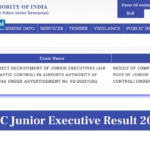The Jammu and Kashmir Services Selection Board (JKSSB) is one of the most important recruitment bodies in the Union Territory of Jammu and Kashmir. For thousands of job aspirants, JKSSB represents opportunity, stability, and a secure future in the government sector. Every year, the board conducts various recruitment examinations for posts ranging from clerks, teachers, and accountants to technical staff in different government departments.
In a region where government jobs continue to be a dream for many, JKSSB plays a central role in shaping careers and ensuring transparency in recruitment. This blog explores JKSSB in detail—its structure, role, functions, exam process, challenges, and the significance it holds for the youth of Jammu and Kashmir.
1. What is Jammu and Kashmir Services Selection Board?
The Jammu and Kashmir Services Selection Board was constituted under the Jammu and Kashmir Civil Services Rules to conduct direct recruitment for various non-gazetted posts in government departments. It works as the nodal agency responsible for ensuring that candidates are selected fairly, based on merit and qualifications.
Over the years, JKSSB has conducted recruitment for posts in education, health, revenue, police, rural development, agriculture, and various technical departments. Its mandate is vast, as the board is tasked with managing the entire cycle of recruitment—from issuing notifications to preparing final selection lists.
2. The Importance in Jammu & Kashmir
Government jobs have always been highly valued in Jammu and Kashmir due to the social security, steady income, and career stability they provide. With limited opportunities in the private sector, especially in rural areas, JKSSB acts as a bridge for youth aspiring to enter government service.
The importance of JKSSB lies in:
- Creating Employment Opportunities: By regularly conducting exams and filling vacancies in different departments.
- Ensuring Fair Selection: Through transparent rules and objective evaluation methods.
- Promoting Skill Development: Encouraging candidates to upgrade knowledge and skills to clear competitive exams.
- Regional Balance: Ensuring that candidates from all parts of the Union Territory, including remote areas, get equal opportunities.
3. Structure and Role
JKSSB is headed by a Chairperson along with members appointed by the government. The board functions with administrative and examination wings to conduct smooth recruitment.
Its major roles include:
- Issuing Notifications: Publishing advertisements for vacancies in government departments.
- Conducting Exams: Holding written tests, computer-based exams, and interviews.
- Document Verification: Ensuring candidates meet eligibility criteria before final selection.
- Publishing Merit Lists: Preparing results based on objective criteria.
- Handling Grievances: Addressing objections and queries of candidates related to recruitment.
This structured approach ensures that candidates are evaluated in a transparent and systematic manner.
4. Recruitment Process
The recruitment process of JKSSB is generally divided into multiple stages depending on the nature of the post. A typical selection process looks like this:
- Notification Release – The board issues an official notification mentioning vacancies, eligibility, syllabus, and exam dates.
- Application Process – Candidates apply online through the official JKSSB portal.
- Admit Card Release – Eligible candidates receive admit cards to appear in exams.
- Written Examination – Either computer-based or OMR-based exams are conducted.
- Skill Test/Physical Test – For technical or field-based posts, candidates undergo skill or physical efficiency tests.
- Document Verification – Shortlisted candidates provide original documents for verification.
- Final Selection – The board releases merit lists and recommends candidates for appointment.
5. Exam Pattern and Syllabus
One of the key aspects of JKSSB recruitment is its exam pattern. The syllabus and structure vary depending on the post, but generally, exams cover:
- General Awareness with Special Reference to J&K – History, geography, polity, and culture of Jammu and Kashmir.
- General English – Grammar, comprehension, and vocabulary.
- Reasoning and Mental Ability – Logical reasoning, puzzles, and problem-solving.
- Quantitative Aptitude – Arithmetic, algebra, statistics, and data interpretation.
- Computer Awareness – Basics of computers, MS Office, and internet usage.
For technical posts, subject-specific knowledge is tested. This ensures candidates are evaluated not just on general aptitude but also on specialized skills relevant to their job role.
6. Challenges Faced
While JKSSB is crucial for recruitment, it has also faced criticism and challenges:
- Delays in Recruitment – Many candidates complain about long gaps between notification and final results.
- Technical Issues – Online exams and application portals sometimes face glitches.
- Litigation and Court Stays – Selections often get delayed due to legal disputes.
- Transparency Concerns – Allegations of irregularities have occasionally created mistrust among aspirants.
Despite these hurdles, JKSSB continues to be the primary source of government recruitment in the Union Territory.
7. Digital Transformation
In recent years, JKSSB has adopted digital practices to enhance efficiency and transparency. The introduction of computer-based tests (CBT) has reduced human intervention, minimizing errors and malpractices. Online applications and digital document verification have made processes more candidate-friendly.
Digitalization has not only improved speed but also provided transparency by ensuring candidates can access information, results, and updates online.
8. The Aspirants’ Journey
For candidates preparing for JKSSB exams, the journey is often long and filled with challenges. Many aspirants dedicate years of study to secure a government job. Preparation includes:
- Studying General Knowledge of J&K – Since local history and polity are always emphasized.
- Practicing Previous Papers – To understand exam patterns.
- Balancing Technical and Non-Technical Subjects – Depending on the post applied for.
- Time Management and Discipline – As competition is intense.
For many, clearing JKSSB exams is not just about securing a job but about achieving social respect and family pride.
9. JKSSB’s Impact on Youth Employment
JKSSB has significantly contributed to reducing unemployment in Jammu and Kashmir by filling thousands of vacancies in recent years. For youth, especially in rural areas, these jobs provide financial stability and a chance to contribute to society.
Moreover, by providing equal opportunities, JKSSB has helped in empowering women and marginalized communities, giving them representation in various departments.
10. Future of JKSSB
As Jammu and Kashmir continues its development journey as a Union Territory, the role of JKSSB will become even more important. With rapid digitalization, the board is likely to conduct more computer-based exams, ensuring transparency and efficiency.
The future focus should be on:
- Speeding up Recruitment Processes
- Expanding Opportunities in new government departments
- Enhancing Transparency through technology
- Building Trust among Candidates by addressing grievances promptly
Conclusion
The Jammu and Kashmir Services Selection Board (JKSSB) is more than just a recruitment body—it is a symbol of opportunity and hope for thousands of youth in the region. While it has faced challenges, its contribution to shaping careers and providing stable employment cannot be ignored.
For aspirants, JKSSB exams are not just about tests—they represent the chance for a better future. For the government, JKSSB ensures departments run efficiently with capable staff. And for society, it stands as a platform of fair employment and equal opportunity.
In the years to come, as recruitment processes become faster and more transparent, JKSSB will continue to be the gateway to government jobs in Jammu and Kashmir, driving both individual growth and regional development.










